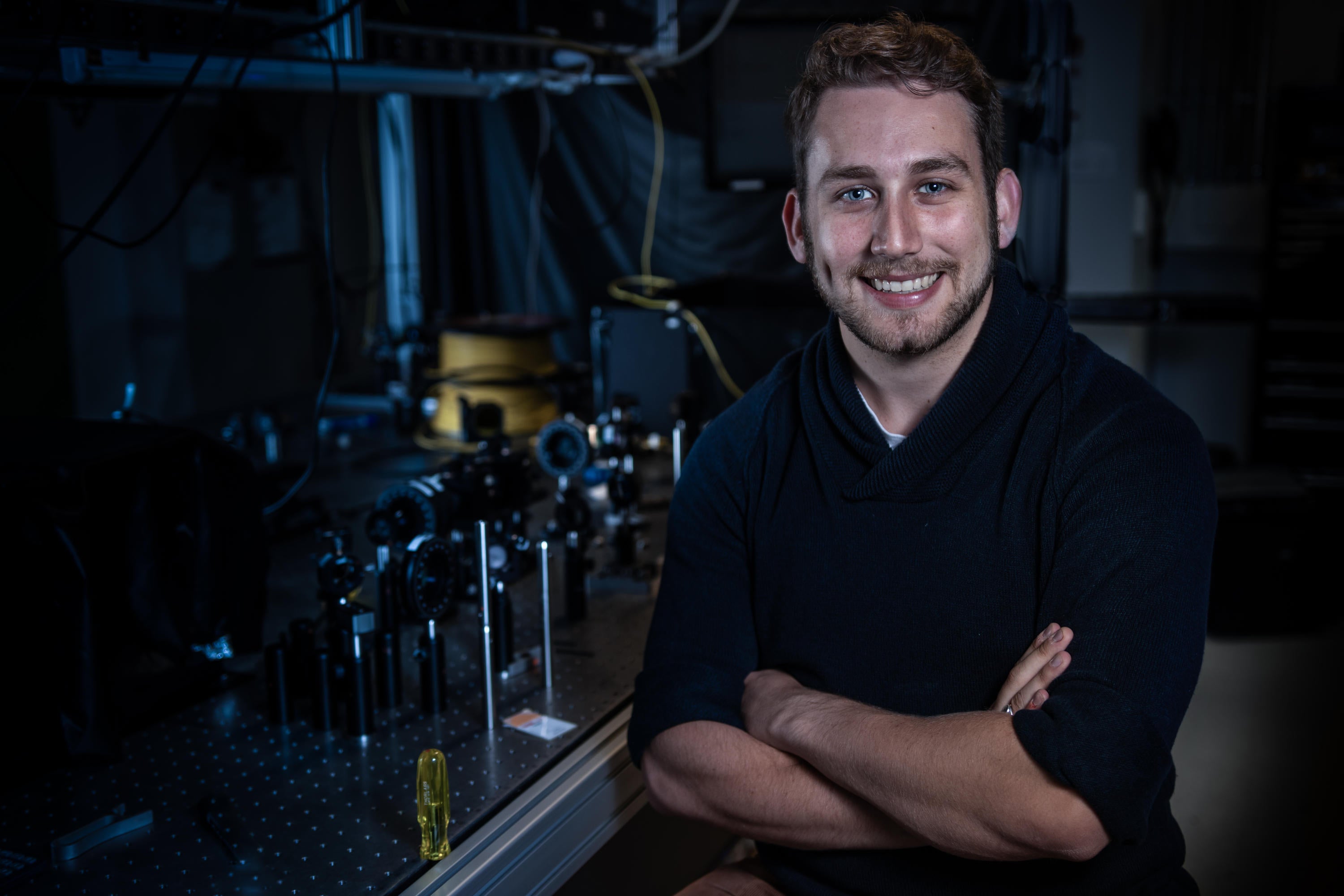
Andrew Cameron, a first-year PhD student in the Quantum Information Collaborative Program, joins a select group from across the country recognized for their academic excellence, leadership, and research potential as part of the Vanier Graduate Scholarship program. Considered one of the most prestigious graduate scholarships in the country, Vanier awards are worth $50,000 per year for up to three years.
Andrew’s research, conducted under the supervision of Physics and Astronomy professor and IQC interim executive director Kevin Resch, looks at how information carried by individual particles of light can be harnessed using the quantum phenomena of entanglement and teleportation.
Specifically, Cameron is exploring methods of manipulating electromagnetic beams consisting of a lattice of spin-coupled orbital angular momentum (OAM) states. This research could lead to significant improvements in information security and computing power.
“Before quantum communication can be effective, it needs to be secure and robust over long distances,” he said. “Quantum optics is one avenue of making this happen.”
His PhD project is a collaboration between groups led by Dmitry Pushin, David Cory, Thomas Jennewein, and Kevin Resch.
The University of Waterloo received a total of six Vanier scholars this year, all within the Faculty of Science. In addition to Andrew, the Department of Physics and Astronomy is also welcoming:
- David Schmid (Physics, Kevin Resch): Identifying quantum contextuality as a resource for quantum information processing applications;
- Anna Golubeva (Condensed Matter Physics, Roger Melko): Quantum Machine Learning: Mutual Enhancement Between Machine Learning and Quantum Physics will LeverageQuantum Computing and Artificial Intelligence;
- Florian Hopfmueller (Theoretical Physics and Chemistry, Laurent Freidel and Robert Myers): Edge Modes and Symmetry in Quantum Gravity; and
- Fiona McCarthy (Theoretical Physics and Chemistry, Robert Mann and David Kubiznak): Holographic Black Hole Chemistry.